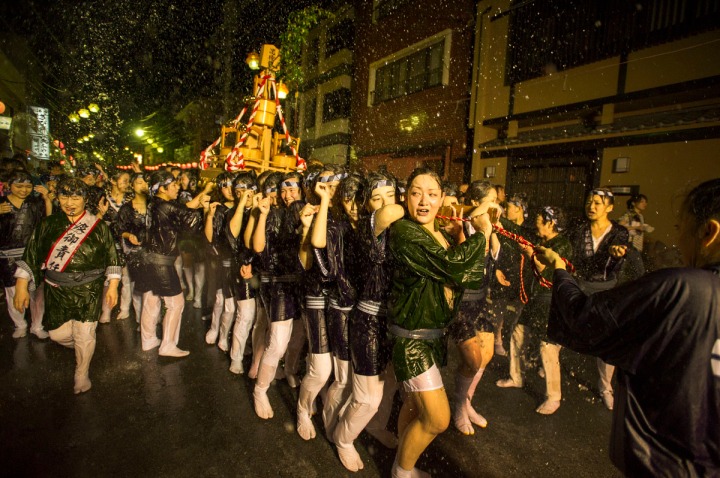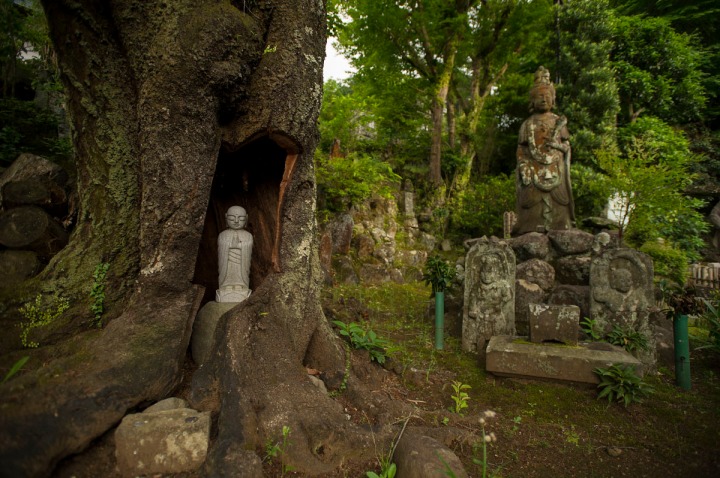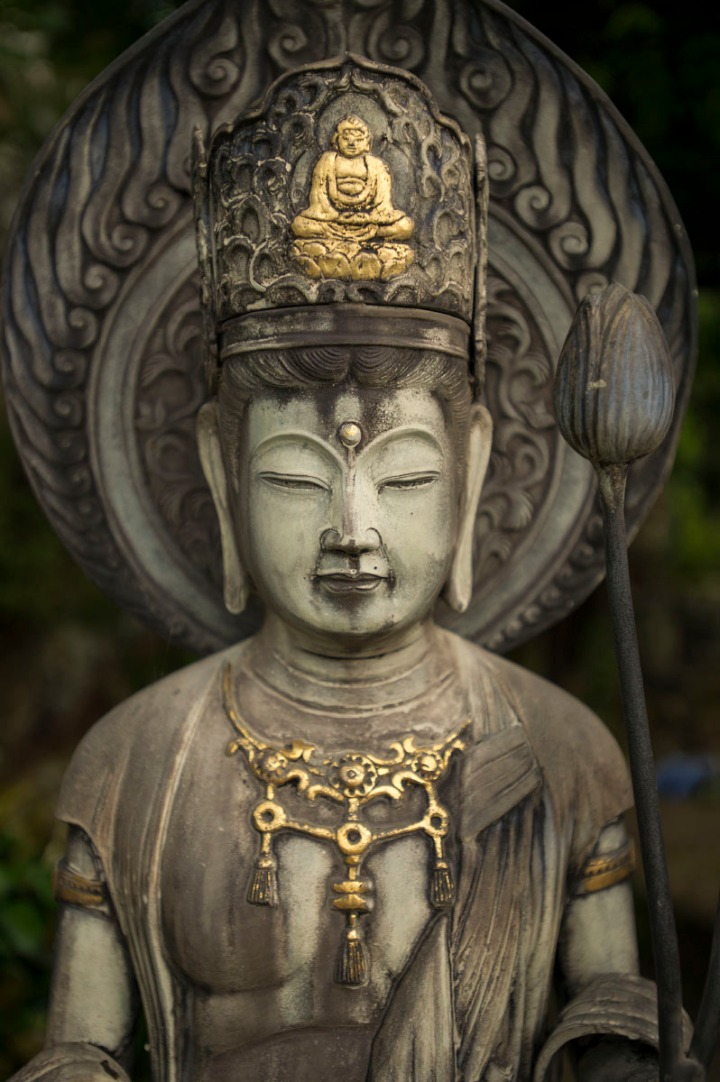Yukake Matsuri – Yuagawara Onsen Festival
Once a year the little town of Yugawara on the western edge of Kanagawa Prefecture throws a huge onsen festival, celebrating the natural springs of hot water that dot the area with a very wet and very chaotic festival. Townspeople and tourists line the streets with huge buckets of hot water (hence the name, yukakematsuri) and douse the passing omikoshi (made up in the form of traditional onsen style buckets) and their carriers with as much as water as they can. One of the omikoshi were shouldered completely by local young women and naturally they bore the brunt of the hot water assaults! The parade route is a few kilometers long and the streets are lined with everything from adults with water buckets to little kids with water pistols and even local fire departments with industrial sized pumps and fire hoses! More photos and more stories from this fantastic (and rather obscure) little festival to come!
Fudonotaki – Yugawara Town Waterfall
At the far end of Yugawara Town is one of the three major water falls that the town tourist board likes to put on their tourist maps. Naturally I had to walk up there to take a look. It is located about 40 minutes easy walk from the station but for people in a hurry there is also a bus stop right in front of the entrance to the fall. Not only is the Fudonotaki (The Fudo Fall) a typically beautiful nature spot with its 15 meter long fall cool and wet in the summer, it is also a hotspot for mineralogists and geologists who come here to study the naturally occurring zeolites, of which one local variant was first discovered here in 1931, the Yugawaralite. I am an amateur in many things but certainly not even an amateur regarding minerals, so I am afraid I won’t be able to tell you anything more about it. The only thing I think I picked up is the fact that Yugawaralites often occur in areas with hot springs. Appart from the yugawaralite, you can also find laumontite, mordenite, epistilbite and chabazite. Maybe someone more knowledgeable than me can brief us about the significance of this! Anyway, the water fall and the surrounding little shrines and altars made for a very picturesque scene in the fast approaching dusk. If you get there earlier in the day there is a small cafe with outdoor hot spring water tubs for visitors to soak their feet.
If you are a regular traveler in Japan you might notice the name, Fudonotaki, or Fudotaki. It is a very common name for waterfalls in Japan, with I think over one hundred places sharing the same name.
Fukusenji Temple – Yugawara
On the western edge of Kanagawa Prefecture (which neighbors Tokyo to the south west) lies Yugawara Town (湯河原町) right between the Pacific Ocean and the glorious hot springs of the mountains. Even in Japan Yugawara is famous for being a town catering to old people, due to the many hot springs who specialize in the elderly and since 2008 the town has no high schools, although three elementary and junior highs. There are quite a few interesting temples in the town though, not least being the pretty little Fukusenji.
Although technically not in Yugawara Town, as the border to Atami City and neighboring Shizuoka Prefecture lies just about 50 meters to the east of the temple, along the Chitose River, it is for all practical purposes completely a Yugawara temple. The main temple building has a gorgeous straw roof which is getting quite unusual these days. Although being more or less loaded with beautiful statues the temple is mostly famous for it Kubi Daibutu, or Big Buddha Head, a rather crude statue of a buddha head! This ceramic head used to be located inside Nagoya Castle but was moved here in 1945.
There is an interesting story behind how the statue came to be, in a legend from the early 17th century. The Daiymo (Lord) of Owari (modern Nagoya) was passing through a town in his grand procession just as a rather deaf lady was taking her bath in front of the family house. Her horrified daughter pushed her mother complete with bath tub and soaps into the house. Seeing this very humble act of daughterly devotion, the Daimyo Tokugawa Yoshinao (1601-1650) forgave the family their indiscretion and commanded her to take up a position as a castle maid. However the Lord’s interest in her were a little bit more rustic, and a year later the poor girl gave birth to a son whom she promptly dispatched of with with the excuse that such a lowly born girl as herself could not possibly be the mother of a child from such an exalted lord. In pity on the girl and the child it was decided that the Buddha Head statue would be created, to remind both the Gods and the Lords of the tragic story (or, unconventional humbleness on the part of the girl).
I might have mistranslated the story, but I think this was what happened. The story was put in very vague terms to say the least! Another explanation, although much less colorful, is that the head was an offering to the spirit of the Daiymo’s favorite son who died at the age of nine.
In the middle of trying to make sense of the legend, I completely failed at finding out just how old the temple itself is!
Yugawara Town is just one stop on the train to Atami, a trip that takes between 90 to 140 minutes from Tokyo, depending on how fast you need to go (with ticket prices to match).































7 comments